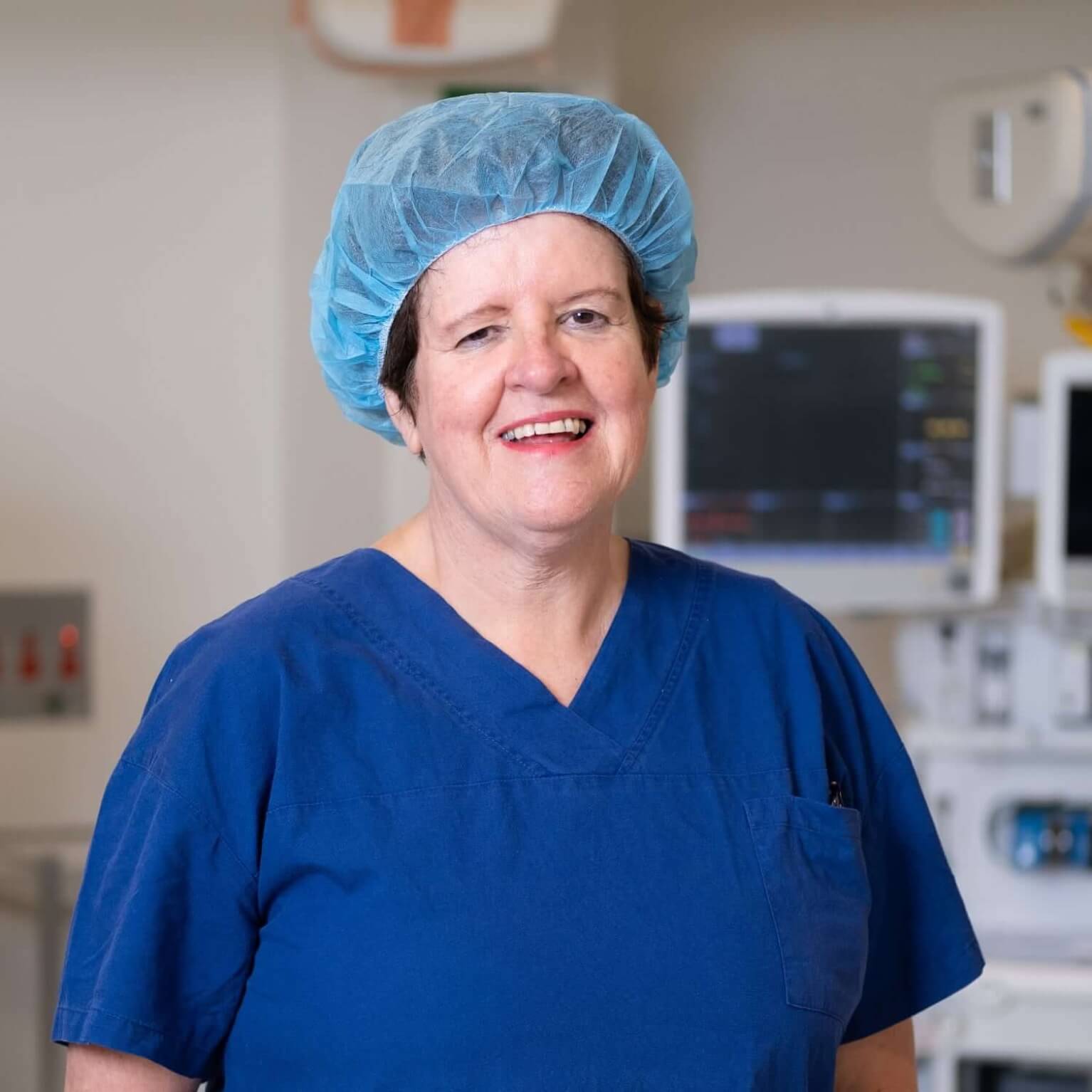Dr Diana Hastrich | Breast Surgeon Perth
Breast Cancer Surgery
Dr Diana Hastrich | Perth Breast Surgeon
What to expect after your breast cancer diagnosis?
If you are in a situation where you have just received a diagnosis, I understand that this is a very stressful and a confusing time. As a breast surgeon, I am usually the first specialist you would see in your treatment team. The role of your breast surgeon is extremely important, and this is not just because it is the surgeon who removes your cancer during surgery. There is good evidence from research that the initial interactions are fundamentally important to build trust and confidence. The research shows that this trust is essential in coping with stress, and with the demands of your treatment.
Personally, I believe you deserve a 100% personalised treatment plan. That is why I take the time to get as much information as possible in the early phase. As a team, we use the information to build your treatment plan specific to the biology of your cancer cells and your preferences. You may come across new information in those consultations, for example about the many different types of breast cancer. Of course, these different types of cancer need different treatments.
 No longer do all women have the same treatment - we can do better than that. Some cancers are small and slow-growing and need a relatively simple plan. But if your breast cancer is biologically aggressive we create a comprehensive treatment plan. It may then involve other measures such as radiotherapy and systemic drug treatment after surgery. In my consultations, it is important to give you an insight in the progress that has been made over the decades. We now have many effective ways to successfully treat breast cancer and long term outcomes are improving all the time.
No longer do all women have the same treatment - we can do better than that. Some cancers are small and slow-growing and need a relatively simple plan. But if your breast cancer is biologically aggressive we create a comprehensive treatment plan. It may then involve other measures such as radiotherapy and systemic drug treatment after surgery. In my consultations, it is important to give you an insight in the progress that has been made over the decades. We now have many effective ways to successfully treat breast cancer and long term outcomes are improving all the time.
Surgery will often be the starting point of your treatment plan. We remove the tumour, and we test some of the lymph nodes. The pathologist examines the tissue in detail, which gives us extra information on top of the initial core biopsy pathology.
We then use all that information to build a ‘risk profile’. It is important to know that surgery is an excellent first step, but that it does not ‘cure’ the majority of breast cancers on its own. You will often hear that many women need radiotherapy, to reduce the risk of local recurrence. They may also undergo systemic drug treatment to reduce the risk of developing secondary disease, and we call these other treatments ‘adjuvant therapies’.
So after your initial assessment you will hear me talk about the multidisciplinary team. It means that we work together as a team of specialists: radiology and pathology experts, radiotherapists and medical oncologists, and myself as a breast surgeon. To fully tap into the expertise of the team, and with your consent, I then present your data to the bigger group. Together, we produce consensus recommendations and it is then my role to explain and clarify the information, and to make sure you get the appropriate referrals. Your health situation is unique and we always tailor your treatment plan to your needs. The referrals may also include genetic testing, fertility services, clinical psychology or other specialised medical help if appropriate.
The breast cancer team encompasses many people with special skills. An essential member of the team is our specialist breast nurse who helps guide and support you as a patient from the first consult through your hospital admission for surgery and onwards if required. You will receive care and support from our wonderful nurses at Mount Hospital both in theatre and in the wards. Most patients undergoing breast cancer treatment or surgery will also see the physiotherapist prior to discharge for advice on how to smoothly return to normal activities.
What are the types of breast cancer surgery?
The aim of breast cancer surgery is to remove the cancer from your breast and the draining axillary lymph nodes. Your lymph system, also present under your armpits as ‘axillary lymph nodes’ filters fluids in your body. It is important for your breast surgeon to find out whether these lymphs are affected by cancer cells.
The aim is to achieve a ‘complete local excision’, or in other words, to completely remove the cancer during the surgery. Your surgical plan is personalised based on the results of your preoperative testing. If the cancer has spread to the axilla, then the plan may include the removal of the axillary lymph nodes.
There are two main types of breast surgery and the extent of the surgery will depend on the extent of the disease.
Breast Conserving Surgery
Mastectomy
With this type of surgery, we remove the entire breast. This treatment is advised if breast conservation is not possible when the cancer is extensive or occurs in more than one area. If you are advised to have a mastectomy we will also discuss breast reconstruction. There are several ways to approach mastectomy. If you opt to have a simple mastectomy (ie without immediate reconstruction) you would stay at Mount Hospital for a couple of days postoperatively. Our breast nurse helps with the fitting of specialist bras and external prostheses. This is important so you can wear your normal clothes and return to your normal activities quickly. This more simple initial surgical approach also means you will be likely to move onto to other adjuvant treatments in a very timely way.
For some women breast reconstruction is a very important part of the surgical process. For some women, we can offer the option to plan the first phase of breast reconstruction on the same day as the mastectomy. Delayed reconstruction is also very successful. There is no one way that is the best way -there are pros and cons to both approaches. This is quite a complicated discussion and requires careful thought and planning.
There are a number of options for breast reconstruction including using your own tissue or using various forms of breast implants. My team and I always aim to give you the most comprehensive information so you can make a confident and well-informed decision.
Choosing between breast-conserving surgery and mastectomy: what is my role as your surgeon?
I believe that as a patient you deserve clear information about your options to achieve the best possible outcome. And I consider it my role as a surgeon to explain options and to guide you. In my many years as a surgeon I have learned that we are all different in how much information we need.
Nowadays there is a lot of ‘information’, and opinions from many different sources. They may include your family and friends, or sources on social media. Quite often, the advice may be confusing and it may not always be relevant to your personal situation. I am here to answer your questions.

Do I always have surgery first?
The usual sequence of treatment is surgery followed by radiotherapy and drug treatment if required. Yet, there are some circumstances where we change the order. There is good research evidence that in some situations, having drug treatment BEFORE your breast surgery may be a good option.
Situations where this may be recommended include:
- If the cancer is a triple negative cancer
- If the cancer expresses the HER2 growth factor receptor
- If the cancer is locally advanced where surgery may be difficult because of the size of the tumour. Larger cancers may be downsized by drug treatment making breast conservation possible rather than needing a mastectomy.
Do you perform breast reconstruction surgery as well?
I do not perform breast reconstructive surgery myself. I work in close cooperation with a number of very experienced reconstructive surgeons who are able to offer you the full range of reconstructive options. Breast reconstruction is not a cosmetic procedure - it is part of good cancer treatment regardless of whether it starts at the time of the mastectomy or is done as a combined procedure. It is usually more complicated than just replacing the breast with an implant. It usually requires several procedures and may also require surgery to the “good” breast to achieve good symmetry.
We aim to achieve the best long term cancer control. My responsibility in the team is planning the surgery to achieve optimal cancer control.The reconstruction surgeon’s role is an excellent long term aesthetic result. With this team approach, we believe we get the best outcomes because we combine the expertise of two surgeons.
I do not do breast reductions or cosmetic breast surgery myself but based on my expertise I am happy to arrange referrals to experienced colleagues.